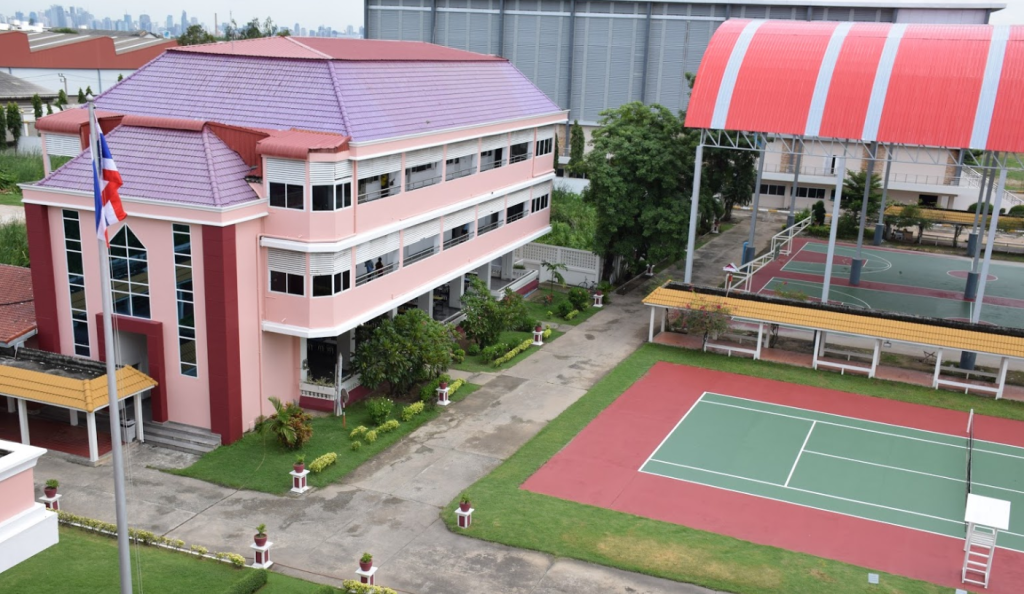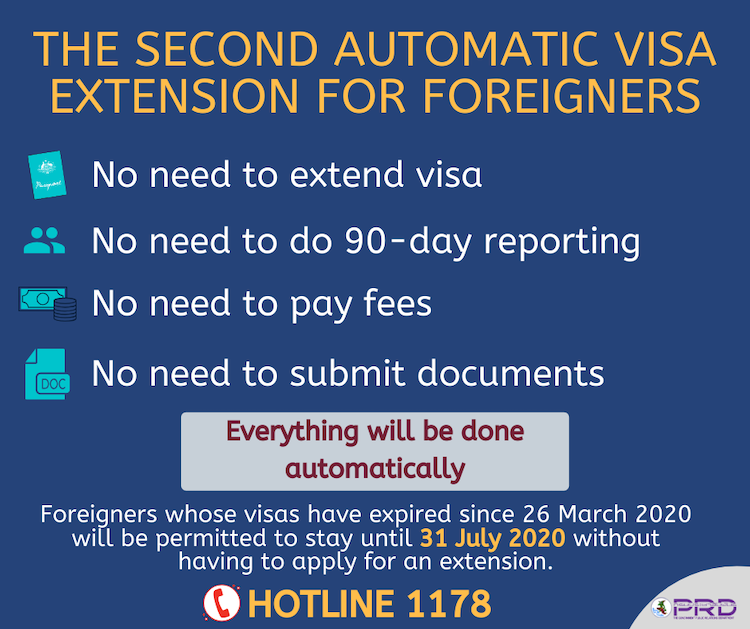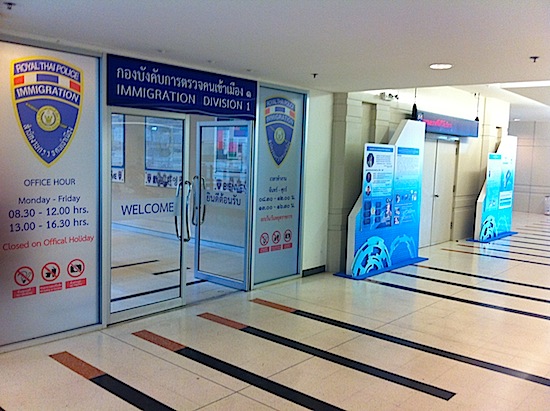
Thailand, with its breathtaking landscapes, vibrant culture, and warm-hearted people, has long been a dream destination for travelers worldwide. But what if you’re captivated by the Land of Smiles and want to extend your stay beyond the typical tourist visa? Fortunately, Thailand offers several ways for long-term stays, allowing you to immerse yourself in the Thailand experiences for a long time.
If you want to stay 90 days or less in Thailand and you are from a western country you can enter on a visa exempt entry that gives you 30 days (ผ.30)or you can enter on a tourist visa which you can now get online and it’s called an Thailand E-visa which you just print out at home and no need for a stamp in your passport or visiting an embassy in your country. Then both of those you can extend in Thailand for another 30 days which gives you a total of 60/90 days.
If that is not enough here are a few ways to stay long-term in Thailand, making your dream of living in this tropical paradise and enjoy it’s benefits.
- Education and Volunteering Programs:
One of the most popular ways to stay long-term in Thailand is by enrolling in an education or volunteering program. Numerous institutions and organizations offer opportunities to teach English, participate in conservation efforts, or work with local communities. These programs provide a chance to contribute to Thai society while experiencing the country in a meaningful way. Additionally, participating in educational courses or cultural exchanges can provide you with an extended stay through student visas. But these permits to stay are often abused by people who do not actually partake in any of the educational or volunteering programs but pay a bribe to be enlisted then never show up. So if you have been on these recently you might be questioned and even denied entry in the worst case scenario so I do not recommend this unless you are legitimately going to be volunteering and can prove it.
- Business and Investment:
Thailand’s growing economy and favorable business climate make it an attractive destination for entrepreneurs and investors. Starting a business or investing in existing ventures can qualify you for long-term visas. The Board of Investment offers incentives and support to foreign investors, making it easier to establish your presence in Thailand. Whether you’re interested in the hospitality industry, manufacturing, or technology, Thailand provides ample opportunities for business-minded individuals to stay long-term. These obviously need a lot of money to be invested in the millions of Thai baht so we won’t go deeper into this but if you are interested in this you should get a lawyer and extensively research this.
- Retirement Visa:
If you’re looking to retire in Thailand, the Retirement Visa, also known as the Non-Immigrant O-A Visa, is designed for individuals aged 50 and above. It allows you to stay in Thailand for a year, with the possibility of renewing it annually. To qualify, you must meet financial requirements, including a minimum monthly income of 65,000 THB which can be from a pension or 800,000 Thai baht deposit in a Thai bank account and you would need to have this every year when you renew your stay permit. The retirement visa offers retirees the chance to enjoy Thailand’s affordable cost of living, pleasant climate, and vibrant expat communities.

- Thai Elite Visa:
The Thai Elite Visa is an exclusive program that grants long-term residency to foreigners for up to 20 years. It offers various membership options with different benefits, such as fast-track immigration, VIP services, and extended stays without the need for visa runs. While it requires a substantial upfront investment, it provides hassle-free, long-term stays in Thailand. The Thai Elite Visa is an excellent choice for those who seek a luxurious and convenient lifestyle in the country. The prices start from 600,000 THB for a 5 year elite visa up to 2 million Thai baht for a 20 year visa. Now this is the most expensive option but the easiest and the least hassle as you have everything done for you by the Thailand Elite staff.
- Marriage Visa (dependent visa):
Marrying a Thai national or having a child that is a Thai national opens the door to the Marriage/Dependent Visa, also known as the Non-Immigrant O Dependent visa. This visa allows you to stay in Thailand for one year and can be renewed annually. The process involves obtaining a marriage certificate and meeting specific financial requirements which are 40,000 THB income per month from overseas or 400,000 THB in an account on your name in a Thai bank. It’s important to note that genuine relationships are required to qualify for this visa. There are pictures and other documents you will have to submit and your spouse or child will have to go to the immigration with you when you extend the stay. On first entry with this visa you get a 90 day stay permit which then you can extend to 1 year if you meet all the qualifications. The marriage visa allows individuals to build a life with their Thai spouse and have a family in Thailand.
- Digital Nomad Visa:
Recognizing the rise of remote work, Thailand has recently introduced the Digital Nomad Visa. This visa is designed for individuals who work remotely and can support themselves financially. It offers a one-year stay, with the option to extend, and allows digital nomads to experience Thailand’s unique blend of work and leisure. With its reliable internet infrastructure, co-working spaces, and vibrant digital nomad community, Thailand has become a sought-after destination for location-independent professionals. Problem is that I don’t see many people using this visa as the requirements are just too hard to meet. This is not for your average digital nomad like a blogger or an affiliate marketer but for people working remotely for companies and having a history and current high income at around 80k USD per year. It just doesn’t seem very well thought off and I bet most will just end up on tourist visas and border hop every few months.

- Education Visa:
For those seeking to study in Thailand, the Education Visa, also known as the Non-Immigrant ED Visa, provides a long-term stay opportunity. Whether you’re attending a language school, university, or vocational program, this visa allows you to pursue education while enjoying the wonders of Thailand. Education visas typically offer a one-year stay with the possibility of extension, providing ample time to delve deep into Thai culture and gain valuable knowledge in your chosen field. This is also one of those that gets exploited a lot and can be had with some bribe money being paid but on future entries in to Thailand you might be questioned and even denied entry. So if you decide to get one for learning Thai i suggest you know how to speak Thai to the immigration officer after a year or two of studying and not show up hangover at the airport without a word of Thai other than Sabai 🙂
- Work Permit and Employment:
Securing employment in Thailand is another avenue for long-term stays. Companies registered in Thailand can sponsor work permits for foreign employees, allowing them to legally work and reside in the country. Work permits are typically tied to specific job positions, and the employer must meet certain criteria to hire foreign workers. Having a skill set in high demand or working in industries such as hospitality, teaching, or technology increases your chances of obtaining employment and staying long-term in Thailand. This is a very complicated topic with a lot of little requirements that need to be met so I won’t go deeper in this but if you have the qualifications you can teach English in Thailand and stay for several years without issues or even leaving the country.

- Property Investment:
Investing in real estate can also offer long-term residency options in Thailand. Foreigners are allowed to purchase certain types of properties, such as condominium units, under their name. By investing in a qualifying property, you may be eligible for a one-year renewable visa. Thailand’s real estate market, particularly in popular tourist areas, provides potential for rental income or a comfortable retirement home while enjoying the country’s natural beauty and rich culture. This is also an expensive option with the minimum investment of 10 million Thai baht but a good option if you want to invest and ideally make money on your investment while staying long term in Thailand.
- Cultural Exchange and Non-Profit Organizations:
Engaging in cultural exchange programs or joining non-profit organizations can provide opportunities for extended stays in Thailand. These programs often focus on preserving Thai traditions, promoting sustainable development, or providing assistance to underprivileged communities. By contributing your time and skills, you can make a positive impact while experiencing the unique aspects of Thai society. This is something that needs to start with these organizations so if you have more questions please go to them directly.
Thailand’s allure goes beyond its women, pristine beaches and ancient temples; it beckons adventurers to explore its depths and make it their home. Whether you’re looking to teach, start a business, retire, or simply experience the vibrant Thai culture and nightlife, there are several ways to stay long-term in this enchanting country. From education and volunteering programs to investment opportunities, specialized visas, and cultural exchange initiatives, Thailand offers a pathway for every dreamer. So, pack your bags, embrace the Land of Smiles, and let Thailand do its magic and get you addicted for the rest of your life just be smart. With careful planning and exploration of the available options, you can make your long-term stay in Thailand a reality.

